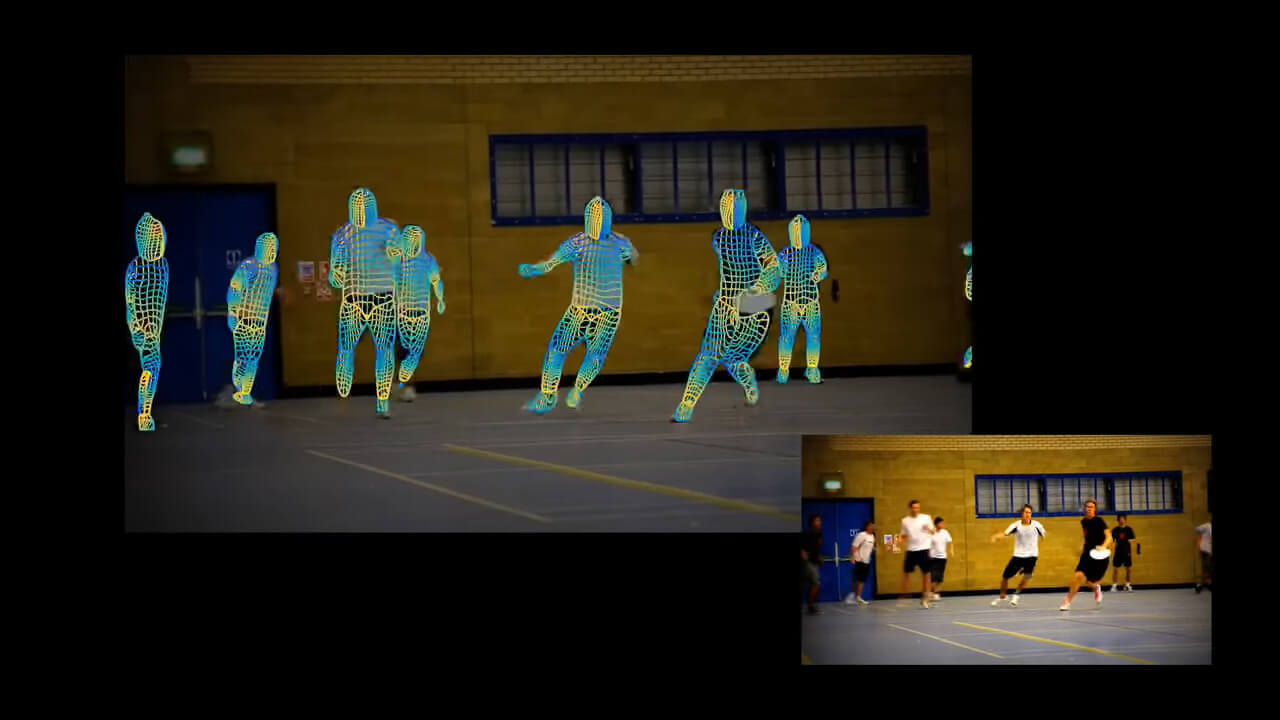Researchers at Carnegie Mellon University managed a breakthrough that will make privacy-conscious people turn their homes into a Better Call Saul-style Faraday cage.
Thanks to AI, wifi can see through walls, as a team of scientists managed to turn with routers into cameras.
Is there a device that can see through walls?
Turns out there is, and everyone already has one in their home.
A new report from Vice reveals that researchers at Carnegie Mellon University found a way to detect the 3D shape and movements of people in a room using only WiFi routers, with no cameras or LiDAR.
“To do this, they used DensePose, a system for mapping all of the pixels on the surface of a human body in a photo. DensePose was developed by London-based researchers and Facebook’s AI researchers. From there, according to their recently-uploaded preprint paper published on arXiv, they developed a deep neural network that maps WiFi signals’ phase and amplitude sent and received by routers to coordinates on human bodies. Researchers have been working on “seeing” people without using cameras or expensive LiDAR hardware for years,” writes the outlet.
What is DensePose?
You can see an image from DensePose in the photo above and find out more about the system in the video below, then see how that system is used by this new invention. Can AI use Wi-Fi as a camera? Yes it can, easily, and it will be more accurate than a regular camera thanks to the little obstruction the signal gets.
The video above comes from a Meta / Facebook project called DensePose, which allows researchers and developers to map images to 3D surfaces. Both the DensePose-COCO and DensePose-PoseTrack datasets are distributed under NonCommercial Creative Commons license, so they are freely accessible.
In the case of WiFi that can see through walls, the data coming from the routers was combined with DensePose, which identifies dozens of key parts of the human body and creates a depiction of a human’s pose. How it works is pretty simple at its core: the cheapest Wifi routers (in this case $30 ones) send out Wifi signals that bounce off the walls of a room. People and objects also bounce those signals, and AI can use the shape of those “obstacles” to guess what they are. Thanks to DensePose, which analyzes human’s movements and posture, the whole system composes a radar-like image – and that’s how a WiFi router can basically see through a wall. Think something like a bat’s natural echolocation and how they orient themselves using sounds, only with WiFi signals and some advanced posture-recognition AI.
The scientists who turned WiFi into a camera and actually managed to “see” through walls using WiFi wrote that “they believe WiFi signals ‘can serve as a ubiquitous substitute’ for normal RGB cameras, when it comes to ‘sensing’ people in a room. Using WiFi, they wrote, overcomes obstacles like poor lighting and occlusion that regular camera lenses face,” adds Vice.
Interestingly enough, the Carnegie Mellon researchers say that this invention is actually progress for privacy rights.
“In fact, most households in developed countries already have WiFi at home, and this technology may be scaled to monitor the well-being of elder people or just identify suspicious behaviors at home,” the researchers say.
As far as we know, there is no algorithm or AI using WIFI to see through walls right now but, when this technology develops further, which will probably happen soon, AI will be able to use WiFi for
What do you think, would you rather have your home under video surveillance with a camera or would your router do the trick? Personally, since I’m experiencing a bit of fatigue trying to minimize privacy-infringing tech in my home, I’d probably stick to my beloved and cheap Tapo to keep an eye on the pets.
Also read: Security Researchers Reveal Most Creepy Tech Gifts In 2022 & The Most Privacy-Friendly Choices
Follow TechTheLead on Google News to get the news first.



















